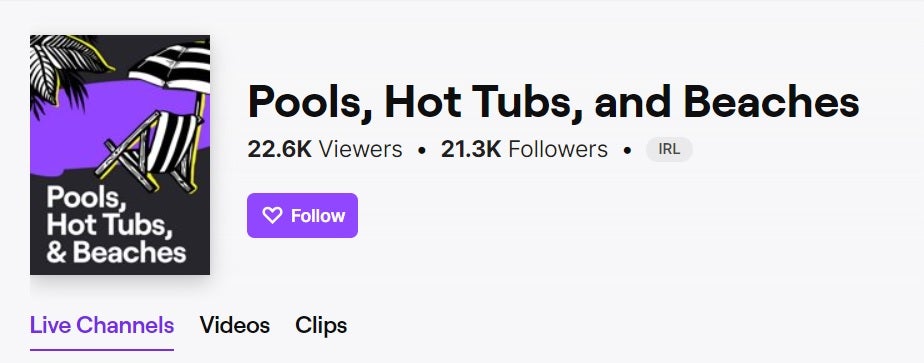The announcement came after a controversial week for Twitch and its “hot tub meta”, with some streamers complaining that advertising had been suspended from their channels without warning or explanation. Twitch said it had done this “at the advertisers’ request”. “We recently suspended advertising on some channels that were flagged by the majority of our advertiser base and failed to notify them,” Twitch said in a blog post. “Our creators rely on us, and we should have alerted affected streamers to this change before it happened - it was a mistake not to do so. We’re working with individual creators to address their specific situations and restore ads where appropriate.” One common complaint from streamers is confusion around Twitch’s guidelines about sexually suggestive content. Twitch tried to clear this up, saying: “being found to be sexy by others is not against our rules, and Twitch will not take enforcement action against women, or anyone on our service, for their perceived attractiveness.” So, what are the rules? Streamers “may appear in swimwear in contextually appropriate situations (at the beach, in a hot tub, for example), and we allow creative expression like body writing and body painting, provided the streamer has appropriate coverage as outlined by our attire policy”, Twitch said. “Nudity or sexually explicit content (which we define as pornography, sex acts, and sexual services) are not allowed on Twitch.” Twitch said its new Pools, Hot Tubs, and Beaches category is not its long-term solution to “improve brand targeting capabilities”, but solves a few issues in the short-term. Crucially, advertisers will be able to either opt-in or opt-out of the category, which from Twitch’s point of view will probably keep the brands at bay for a while at least.
